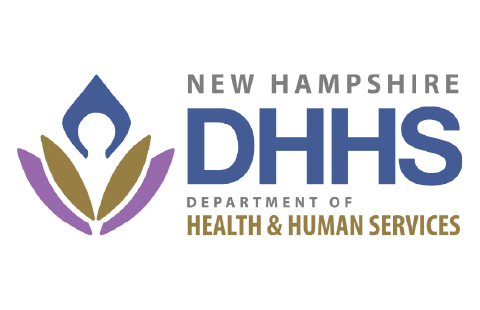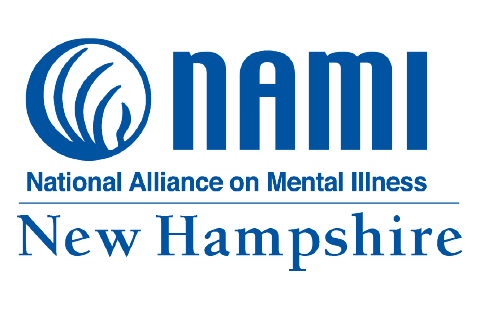
In the U.S., approximately 100,000 young people experience a psychotic episode each year.
Why do we need the HOPE model?
In the U.S., approximately 100,000 young people experience a psychotic episode each year. As many as 3 in 100 people will have a psychotic episode at some point in their lives. Early or first-episode psychosis (FEP) refers to when a person first shows signs of psychosis, which often occurs in adolescence or young adulthood. Psychosis is characterized as disruptions to a person’s thoughts and perceptions that make it difficult for them to recognize what is real and what isn’t. These disruptions are often experienced as seeing, hearing, and believing things that aren’t real or having strange, persistent thoughts, behaviors and emotions. Individuals who experience these symptoms for the first time do not typically receive intensive, individualized treatment in a timely manner, so their symptoms and ability to function may worsen. In addition, family members are often confused and at a loss for what to do. Research has shown that when treated within the first three months of occurring, individuals experiencing FEP can function much as they did before and achieve better outcomes.
Who is HOPE for?
The HOPE treatment model is for individuals, aged 15 to 35 years, who are showing symptoms of serious mental illness, including seeing, hearing, and believing things that aren’t real or having strange, persistent thoughts, behaviors and emotions. Family members are often the first to notice the signs of a major change that may signal a serious mental illness. Some of these signs can include (but are not limited to):
- Trouble thinking clearly or concentrating
- A lack of or jumbled speech
- Suspiciousness or uneasiness with others
- A decline in self-care or personal hygiene
- Spending a lot more time alone than usual
- Strong, inappropriate emotions or having no feelings at all
- Seeing or hearing things other people cannot see or hear
- A loss of pleasure and/or motivation
- Magical thinking and/or odd beliefs
- Slowed physical movements
- And others…
Many young people exhibiting first episode psychosis also misuse substances (13-50%)[ii].
* As with any treatment, only a trained clinician should assess and diagnose the appropriateness of HOPE or any other mental health intervention.

Is Coordinated Specialty Care effective?
Several randomized controlled trials have shown that individuals who received CSC for first episode psychosis remained in treatment longer, experienced greater improvement in quality of life and psychopathology, experienced greater involvement in work and school, and reduced hospitalization rates compared with individuals in typical community treatment[iii],[iv]. The positive effects were more pronounced for those who received treatment soon after their symptoms began.
Who provides HOPE?
Nashua, Portsmouth, Derry, and Keene
There are four Community Mental Health Centers that are providing CSC for First Episode Psychosis through the HOPE program in New Hampshire.
- Nashua – Greater Nashua Mental Health
- Portsmouth – Seacoast Mental Health Center
- Derry – Center for Life Management
- Keene – Monadnock Family Services
National
The National Substance Abuse and Mental Health Administration also offers a national database to locate FEP/CSC treatment providers:
Early Serious Mental Illness Treatment Locator

What can I expect if I receive HOPE treatment?
Once you have been referred, a mental health clinician will conduct a full evaluation to determine if you need Coordinated Specialty Care. If yes, the first step will be to engage you and the people in your support network to ensure that everyone is safe and focus on stabilizing your symptoms. If you are hospitalized, they may start working with you to prepare you for when you are discharged. The members of the HOPE team include a therapist, psychiatrist, case manager, peer support specialists, family support worker, and employment/vocational specialist. One of the first steps is to prescribe a medication regimen and explain to you how will work. When your acute symptoms are sufficiently managed or in remission, the therapist will work with you to establish your goals and begin to help you and your family to pursue those goals with the goal of improving your physical, emotional, and psychological health. You will be engaged in individual weekly treatment sessions and group sessions where you will meet other people who are going through what you are going through, learn about what may be causing your symptoms, and using your social supports to ensure you stay on track in your recovery. HOPE treatment will typically last from one or two years.
How can I learn more about HOPE?
Training and support to provide HOPE treatment is coordinated by NH Department of Health and Human Services in collaboration with the University of New Hampshire, Dartmouth Health Department of Psychiatry, NAMI NH, and several community mental health centers. In particular, NAMI NH has been a leader in advocating for HOPE treatment, and can provide you with detailed information to find a provider and learn more about early onset psychosis. Visit the NAMI NH website called “Onward NH” to learn more.
To learn more about training and technical support, there is a Statewide Center of Excellence at Dartmouth Health’s Department of Psychiatry. This center, called PEARLS (Psychosis Early Action Resource and Learning Services), is focused on providing training and support to New Hampshire’s CSC providers.



Sources:
Mueser, K. et al. (2015). The NAVIGATE Program for First-Episode Psychosis: Rationale, Overview, and Description of Psychosocial Components. Psychiatric Services, 66(7):680-90. doi: 10.1176/appi.ps.201400413.
[ii] Substance Abuse and Mental Health Services Administration: First-Episode Psychosis and Co-Occurring Substance Use Disorders. Publication No. PEP19-PL-Guide-3 Rockville, MD: National Mental Health and Substance Use Policy Laboratory. Substance Abuse and Mental Health Services Administration, 2019.
[iii] Kane, et al., (2016). Comprehensive Versus Usual Community Care for First-Episode Psychosis: 2-Year Outcomes From the NIMH RAISE Early Treatment Program. American Journal of Psychiatry. 173(4):362-72. doi: 10.1176/appi.ajp.2015.15050632.
[iv] Nossel, et al. (2018). Results of a Coordinated Specialty Care Program for Early Psychosis and Predictors of Outcomes. Psychiatric Services, 69(8):863-870. doi: 10.1176/appi.ps.201700436.


